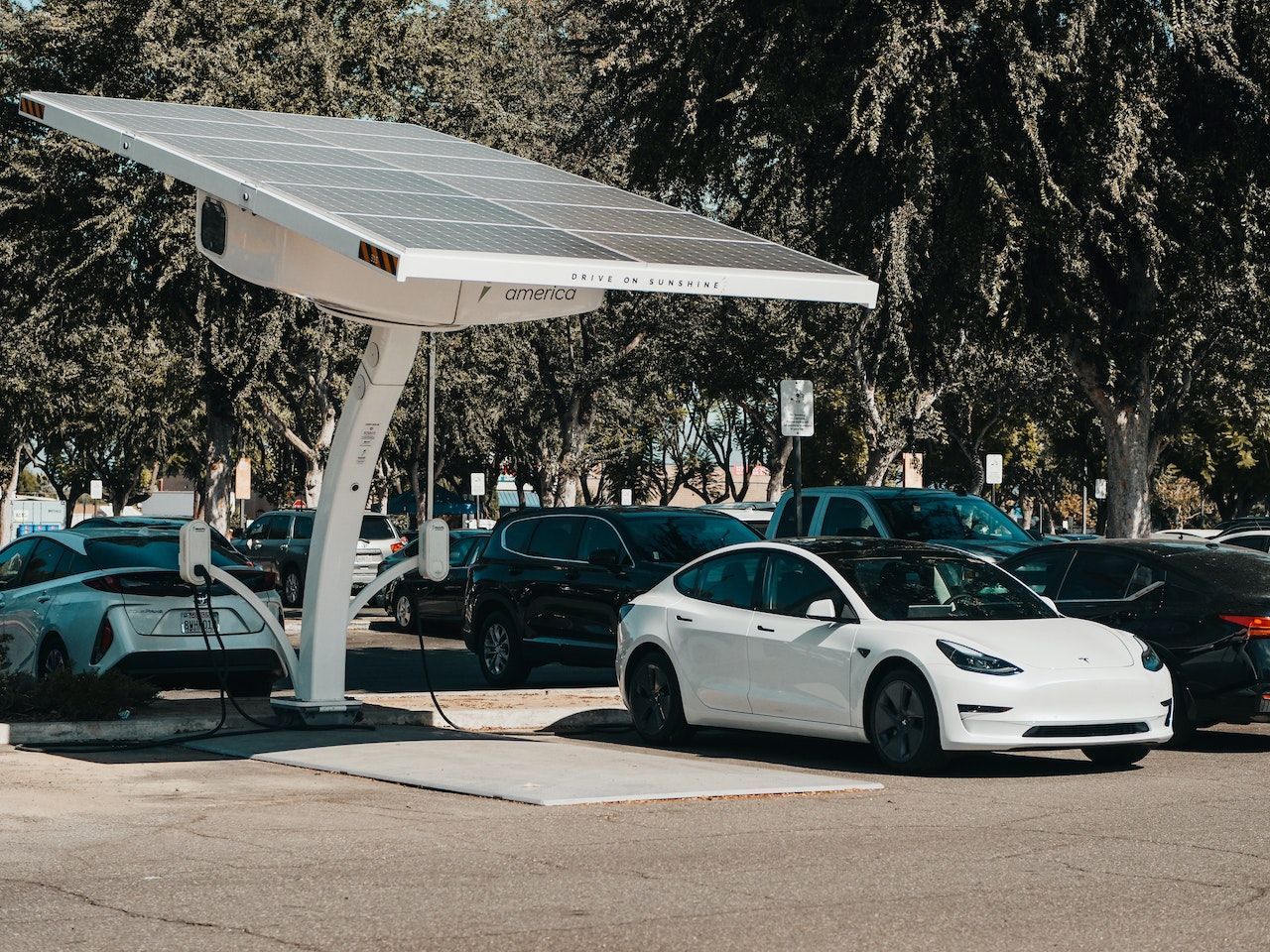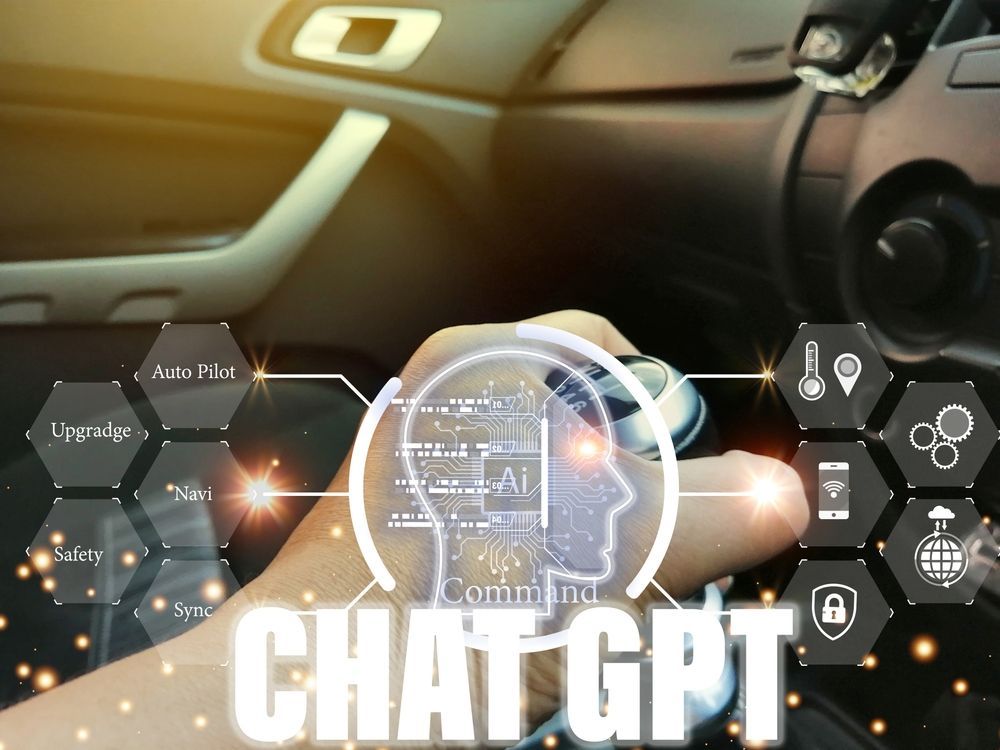Top Reasons To Buy An Electric Car Instead Of Gas Vehicles
By Marcela De Vivo • November 15, 2023
Lots of drivers dread their long commutes to work or school each day. Due to rising fuel costs and the impact of carbon emissions from gas vehicles, electric cars can appear more appealing to many commuters.
An electric car is an automatic vehicle with an electric motor that powers it. A fully electric car does not run on gas or diesel. This can mean huge savings for you as a consumer, especially as gas prices continue to rise.
Why You Should Consider Buying An Electric Car
There are many factors to consider when buying an electric car, including:
● The electricity for charging an electric car is cheaper than the cost of gas.
● If an electric car recharges at home overnight, time and money aren’t wasted going to get gas or charging at a more expensive, less convenient charging station.
● Solar and wind-powered electricity is lowering in cost and may be way lower than the cost of gas in the future.
● More electricity is created using renewable sources every year.
● Secondhand electric cars can be cheaper than secondhand gas vehicles.
● The maintenance cost of a secondhand electric car is a third of that of a gas vehicle.
● The cost for parts and maintenance on a secondhand gas vehicle can be very high, and the car can break down often. Electric cars have fewer moving automotive parts and require fewer repairs.
Is It Worth It To Buy An Electric Car?
The answer to whether it is worth buying an electric car is complicated, and you have to weigh the benefits and disadvantages of buying an electric car.

Benefits Of Electric Cars
For many who are considering buying an electric car, the biggest benefit is gas savings, especially if they can charge their car at home.
Comparing an electric vehicle with a gas vehicle in the same class, the electric vehicle savings range from $.14 per mile to $.10 per mile. This is anywhere from three to five times cheaper per mile. The reduction of spending money on gas can go a long way in helping you reach financial independence.
The reduced environmental impact of driving an electric vehicle instead of a gas vehicle can be another benefit. An electric car’s footprint is smaller over its lifetime than a gas vehicle, even when considering the electricity used for charging.
Drawbacks Of Electric Cars
Despite the money-saving benefits and environmental benefits, there are some potential disadvantages to owning an electric car. The biggest concern is worry over the range of the vehicle. Advances in technology have now made it possible for most electric cars to be driven 200 miles on a fully charged battery. Driving habits and weather conditions may play into this, however.
Another concern that people have about electric cars is that they may have to search to find a charging station. While this may have been the case, many people can now meet most of their driving needs by charging their vehicles at home.
There are now over 45,000 public charging stations in the United States. Work charging is also becoming more available, and you can use an app to locate a charging station.
Charging Your Electric Car At Home
Your home charging options will vary based on your location. If you live in a recently built development, you may have access to vehicle charging stations at home. Living in an older home, you can charge your electric car using a residential power outlet. Although it can take up to 12 hours to charge fully, this is still convenient for most people.

How To Buy An Electric Car
Like most cars, you can buy or lease a new electric vehicle from a dealership, a used vehicle from a new car dealer, a used car dealer, or a private party. Buying a car from a dealership should be like purchasing a gas vehicle. The best way to learn about dealers to buy an electric car from is by exploring owner forums for vehicles you are interested in. Electric cars can be financed and insured just like gas vehicles.
You can also buy an electric car from an automaker and their showroom. However, due to strict dealer laws, purchasing a car without a dealership network is more challenging, depending on the state.
Should I Buy An Electric Car Or Lease One?
While you can do either, just like with a gas vehicle, the decision can be more difficult to make with an electric car. Some experts suggest only leasing electric cars because technology is advancing at such a rapid rate, and there is still some uncertainty about the lifespan of an electric car battery or an electric car’s degradation of range over time.
Alternatively, when you lease an electric vehicle, you may lose the ability to claim tax credits and other incentives that will instead be taken by the leasing company.
Should I Buy An Electric Car Now Or Wait?
Since the pandemic, the price of electric cars has gone up. There isn’t a right answer to this question. The decision depends on a few essential questions, including how much you can spend, what type of car you need, if you would buy used or lease, etc.
Electric vehicle prices are coming back down slowly, although they currently remain well above the industry average. More models are also hitting showrooms, and dozens of new electric cars are expected to come out in the next two years, expanding the selection.
When it comes to electric cars, your options are affordable, long-range, or large-size. Recently automakers have focused on compact SUVs with 250-mile ranges, so if that is the size of vehicle you are looking for, then go ahead; if not, it may be best to wait. The selection for larger electric cars might be scarcer. If you want a truck, waiting for new models to come out may be better.

Reasons You Might Hesitate To Buy An Electric Car
There are some reasons not to buy an electric car. These can include:
1. Higher Cost
You generally have to pay a higher upfront cost for an electric vehicle than a gas vehicle. Although the savings in gas and maintenance equal out over time, it is still a big part of the decision for many people, especially because they can often buy a bigger gas vehicle for the same cost.
2. Lack Of Infrastructure
Even though you can charge your electric car at home, it is often cheaper to use a public charging station. Depending on where you live, finding a public charging station can mean having to drive as much as 50 miles or more.
3. Extended Charge Time
While a gas vehicle can be filled in minutes, it can take up to six to eight hours to charge an electric vehicle at home. Even with a fast charger and a bigger battery, it still can take between 30 to 60 minutes to get a decent charge.
4. High Insurance Cost
An electric car can be expensive to insure due to emerging technology. While electric cars have fewer parts, like batteries, those parts may be more expensive.
5. Limited Charging Infrastructure
While electric cars don’t need gas to operate, they are still very reliant on charging. There is a significant lack of charging stations, and this fact may make you not want to buy an electric car. The good news is that the number of charging stations is increasing, but this will take time.
6. Improving Battery Technology Will Bring Down Prices
Electric cars are currently more expensive than gas vehicles. However, the upfront cost is expected to drop thanks to improved battery technology. Around 30 to 40 percent of an electric car’s cost is due to the battery alone. The introduction of new and cheaper batteries over time will help bring electric car costs down.
7. Not Many Mechanics Service Electric Cars
Although routine maintenance isn’t as much of an issue with an electric vehicle, you still need to take it in for maintenance every couple of years. There are currently a limited number of mechanics who are trained to work on electric cars. This can mean if you have an issue with your vehicle, you may have a challenging time getting it fixed.
Should You Buy An Electric Car? Key Takeaways
Electric cars have many benefits for users, including gas and maintenance savings and being more environmentally friendly. However, electric vehicles can have some drawbacks, including higher insurance costs, more expensive repairs, trouble finding certified mechanics, extended charge time, limited charging infrastructure, and more.
Whether or not you should buy an electric car depends on what type of car you are looking for, including range, how close you are to a charging station, if you can charge your vehicle at home, and if you feel that the gas and maintenance savings are worth it.
HOW MUCH IS MY CAR WORTH?


USA Patriot Act Disclosure: Important information about procedures for opening a new account
To help the government fight the funding of terrorism and money laundering activities, Federal law requires all financial institutions to obtain, verify, and record information that identifies each person who opens an account. What this means for you: When you apply for a loan, we will ask for your name, address, date of birth, and other information that will allow us to identify you. We may also ask to see your driver's license or other identifying documents.
Loans may be made by one of several lenders, including: Wilshire Commercial Capital L.L.C. dba 1 (800) Car-Title and Wilshire Consumer Credit, a licensed lender in certain states. Loans not available in all states. In California, loans are made pursuant to a Department of Financial Protection & Innovation (DFPI) Finance Lenders License. See State Disclosures for additional information.
Accessibility Statement. We are committed to ensuring digital accessibility for people with disabilities. We are continually improving the user experience for everyone and applying the relevant accessibility standards in compliance with Web Content Accessibility Guidelines. For feedback on our website accessibility or if you have any problems with the access of our website please call our toll-free number 800-589-0290 or email us at WilshireCustomerCare@WilshireConsumer.com and we will assist you.
Wilshire Commercial Capital, LLC dba 1 (800) Car-Title and Wilshire Consumer Credit is located at 4727 Wilshire Blvd, Suite 100, Los Angeles, CA 90010.
NMLS ID:907578 | Click here for the NMLS Consumer Access Database.
TO REPORT A PROBLEM OR COMPLAINT WITH THIS LENDER, YOU MAY WRITE OR CALL Tracy Bergiman, Director of Compliance, 4751 Wilshire Blvd. Suite 100, Los Angeles, CA 90010, 323-837-5775, tbergiman@westlakefinancial.com.
New Mexico Only: This lender is licensed and regulated by the New Mexico Regulation and Licensing Department, Financial Institutions Division, P.O. Box 25101, 2550 Cerrillos Road, Santa Fe, New Mexico 87504. To report any unresolved problems or complaints, contact the division by telephone at
(505) 476-4885 or visit the website: https://www.rld.nm.gov/financial-institutions/.
Copyright. Wilshire Commercial Capital, LLC. dba 1 (800) Car-Title and Wilshire Consumer Credit. All Rights Reserved.











